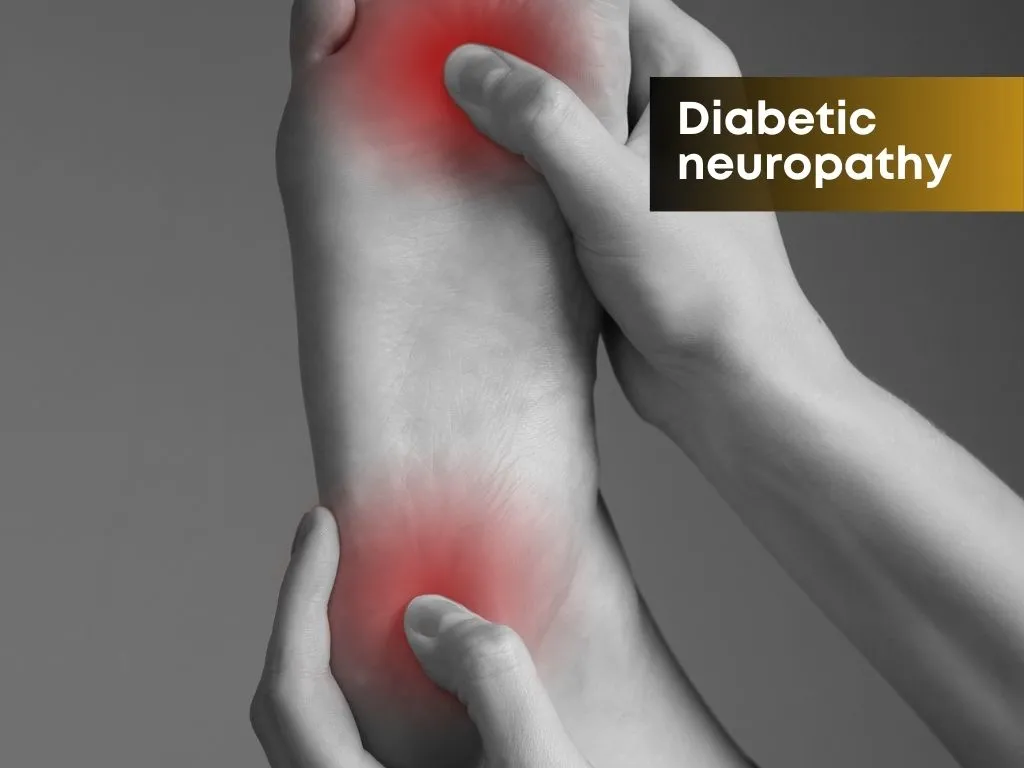Overview
Diabetic neuropathy is a type of nerve damage that can occur in people with diabetes.
It is caused by prolonged exposure to high levels of blood sugar, which can injure the nerves throughout the body.
Diabetic neuropathy most commonly affects the nerves in the legs and feet, but it can also affect nerves in other parts of the body.
There are several types of diabetic neuropathy, including:
Peripheral neuropathyAutonomic neuropathyProximal neuropathyFocal neuropathy
Causes
Diabetic neuropathy develops gradually over time due to prolonged exposure to high levels of blood sugar, which is characteristic of diabetes.
Hyperglycemia (high blood sugar)Advanced Glycation End Products (AGEs)Reduced nerve growth factorInflammation and oxidative stress
Symptoms
Peripheral neuropathy:
Numbness or reduced ability to feel pain or temperature changes in the feet and legs.Tingling or burning sensations.Sharp or shooting pains, often described as stabbing or electric shock-like sensations.Increased sensitivity to touch.Muscle weakness or loss of coordination.
Autonomic neuropathy:
Digestive problems, such as bloating, constipation, diarrhea, nausea, vomiting.Bladder dysfunction, such as urinary incontinence or difficulty emptying the bladder completely.Sexual dysfunction, including erectile dysfunction in men and vaginal dryness.Changes in heart rate or blood pressure, leading to lightheadedness, dizziness, fainting.
Proximal neuropathy:
Severe pain in the thighs, hips, or buttocks, often on one side of the body.Muscle weakness, typically affecting the legs.
Focal neuropathy:
Sudden, severe pain in specific areas of the body, such as the head, or leg.Muscle weakness or paralysis, often affecting one side of the body.Difficulty focusing the eyes, double vision, or pain behind the eyes.
Treatment: Modern Medicine
Blood sugar controlPain managementTranscutaneous Electrical Nerve Stimulation (TENS)Peripheral neuropathy-specific medications
Treatment: Traditional Medicine
Warm bathsFoot careAcupunctureHerbal supplementsAromatherapy
Caution
Consult with healthcare providerSafetyQuality of supplementsEffectiveness
Prevention
Monitor and manage other risk factorsQuit smokingManage foot health
 Nalamaree Team
Nalamaree Team





















.jpg.webp)
